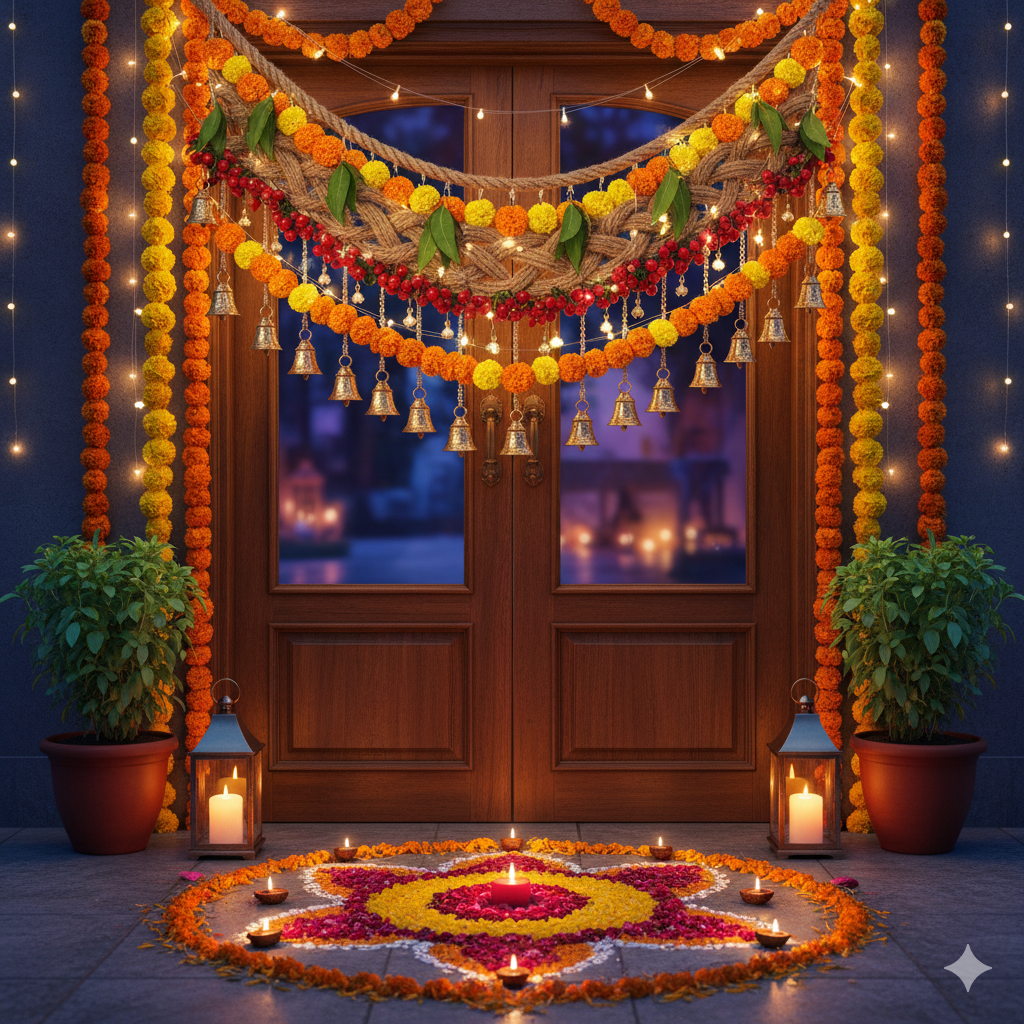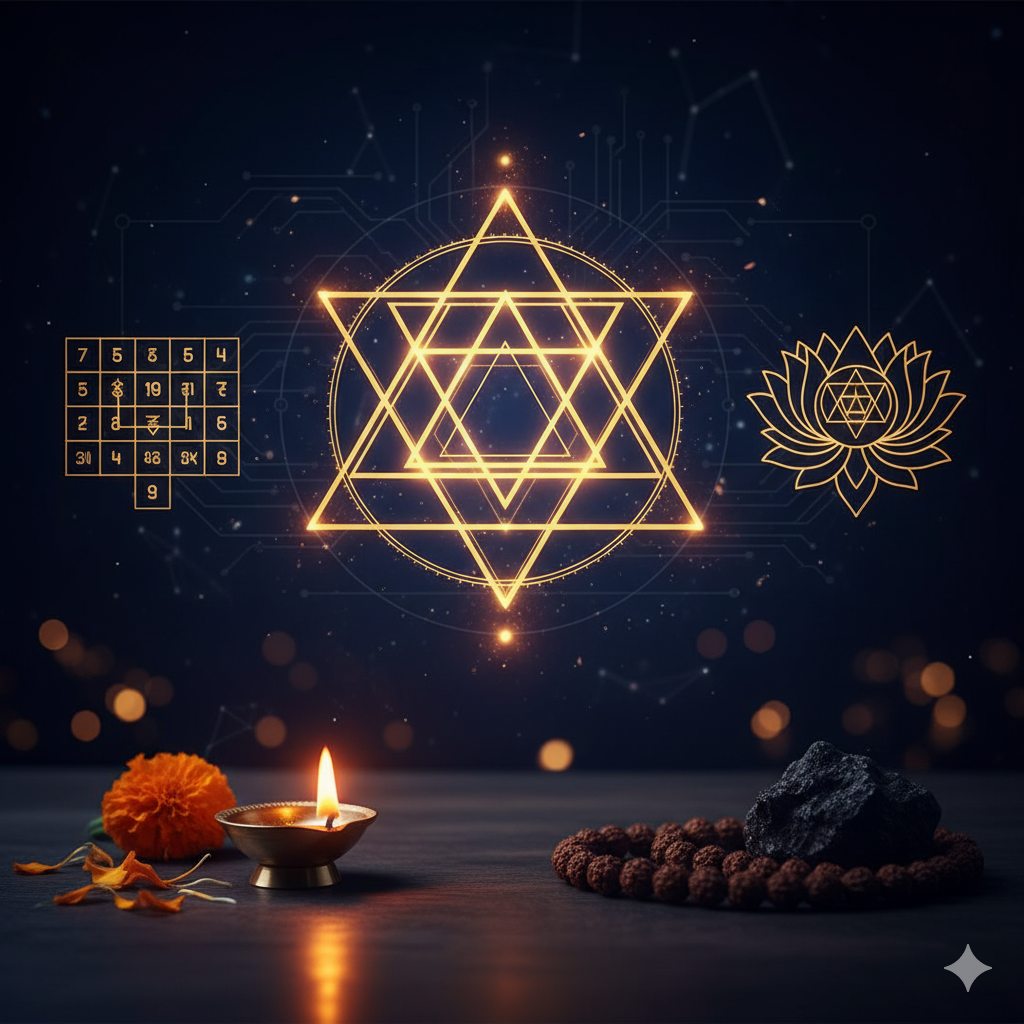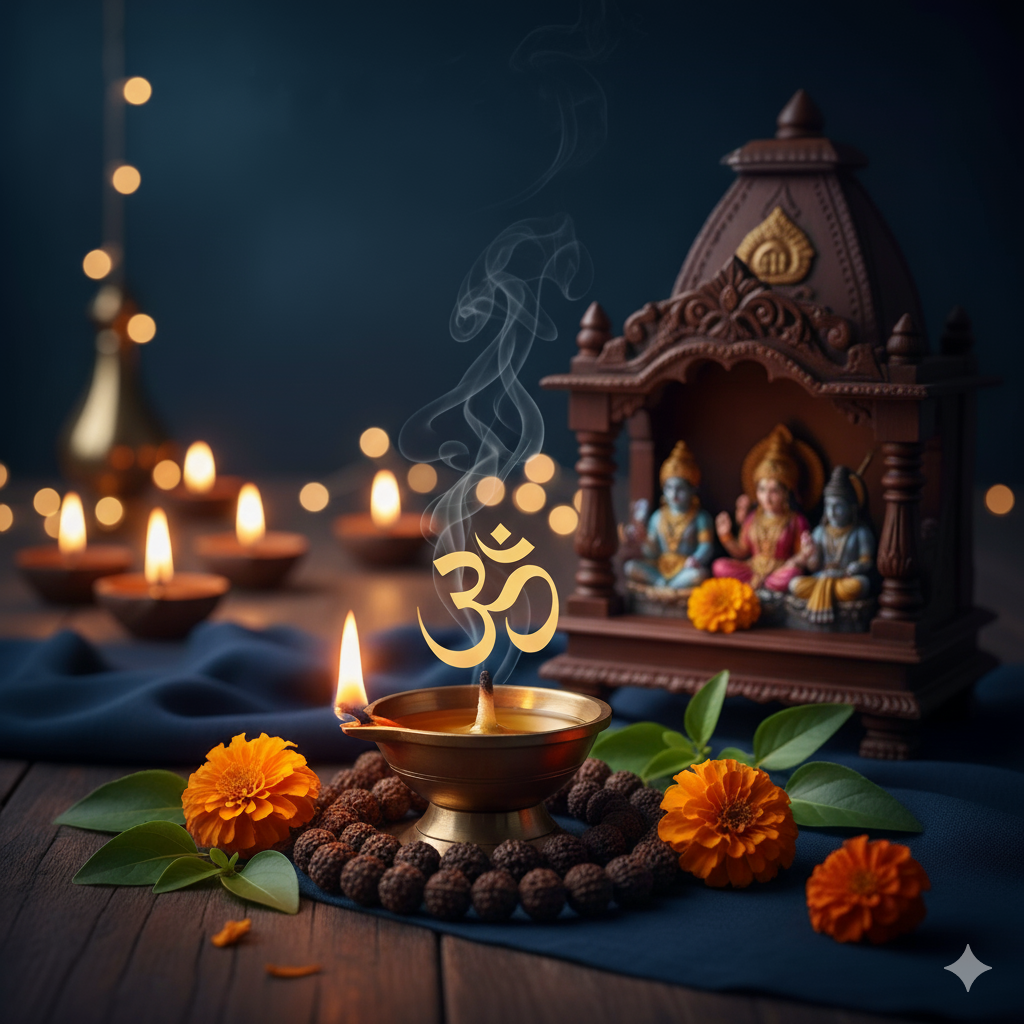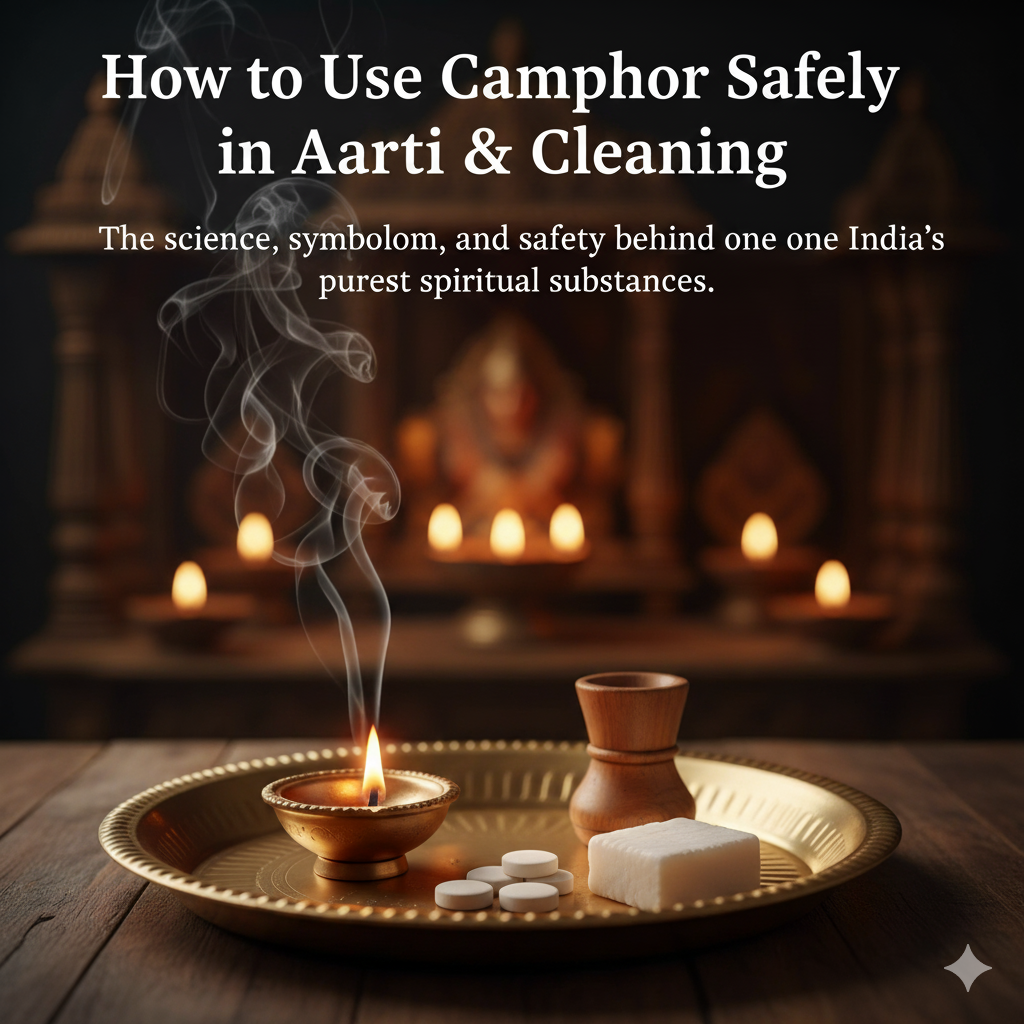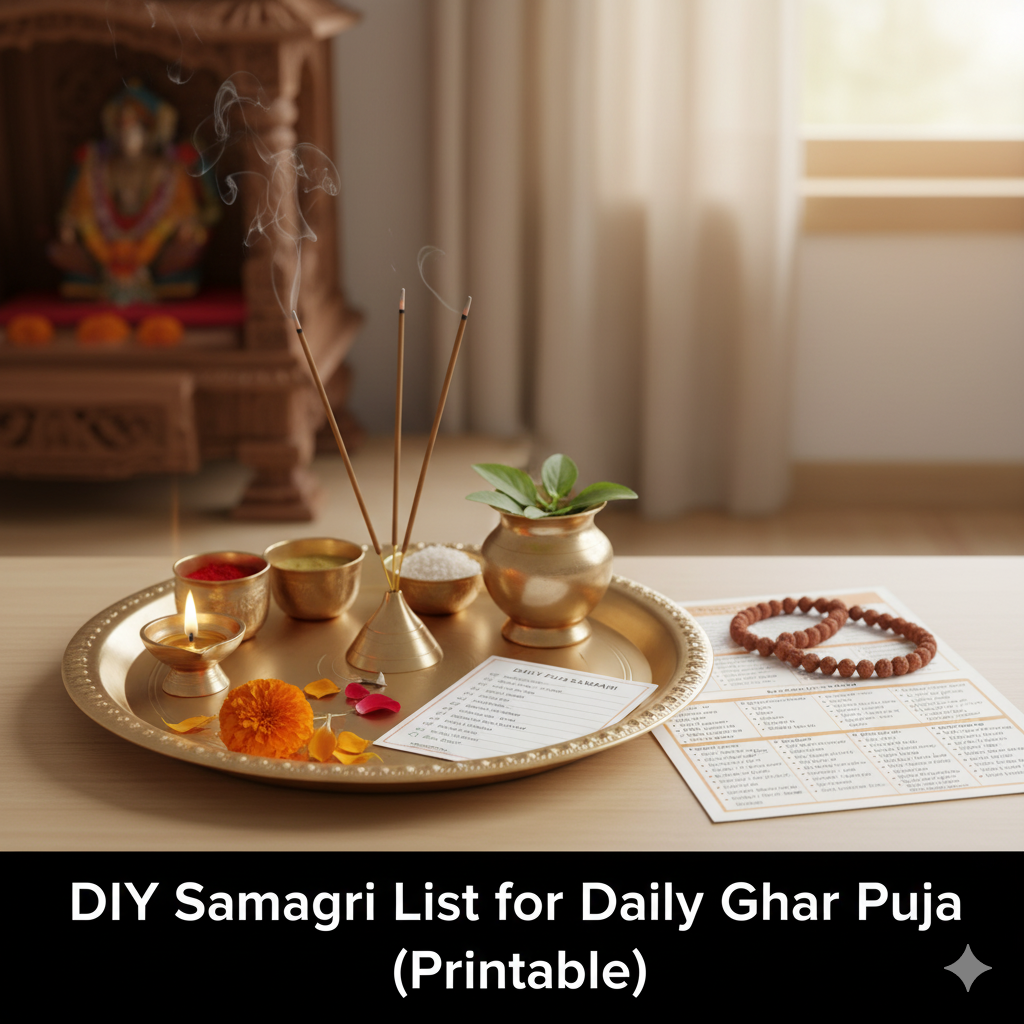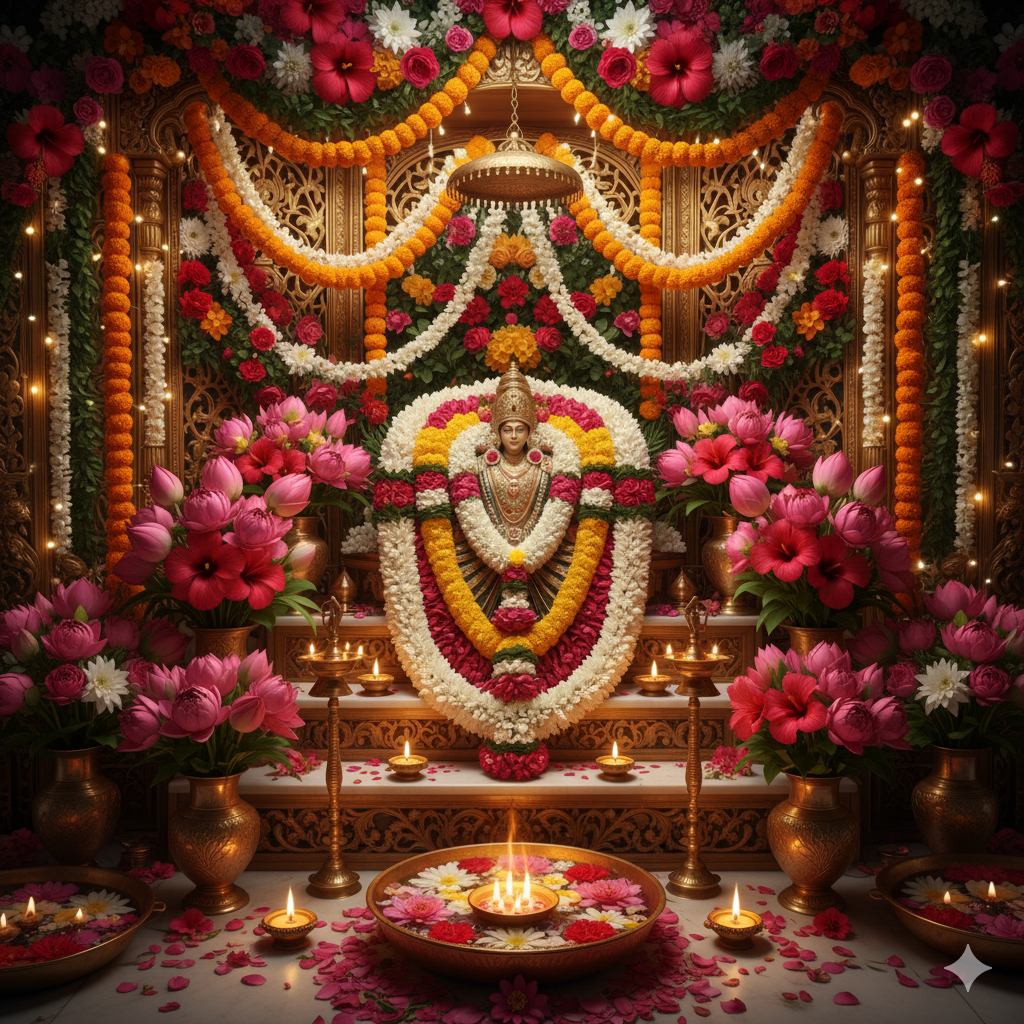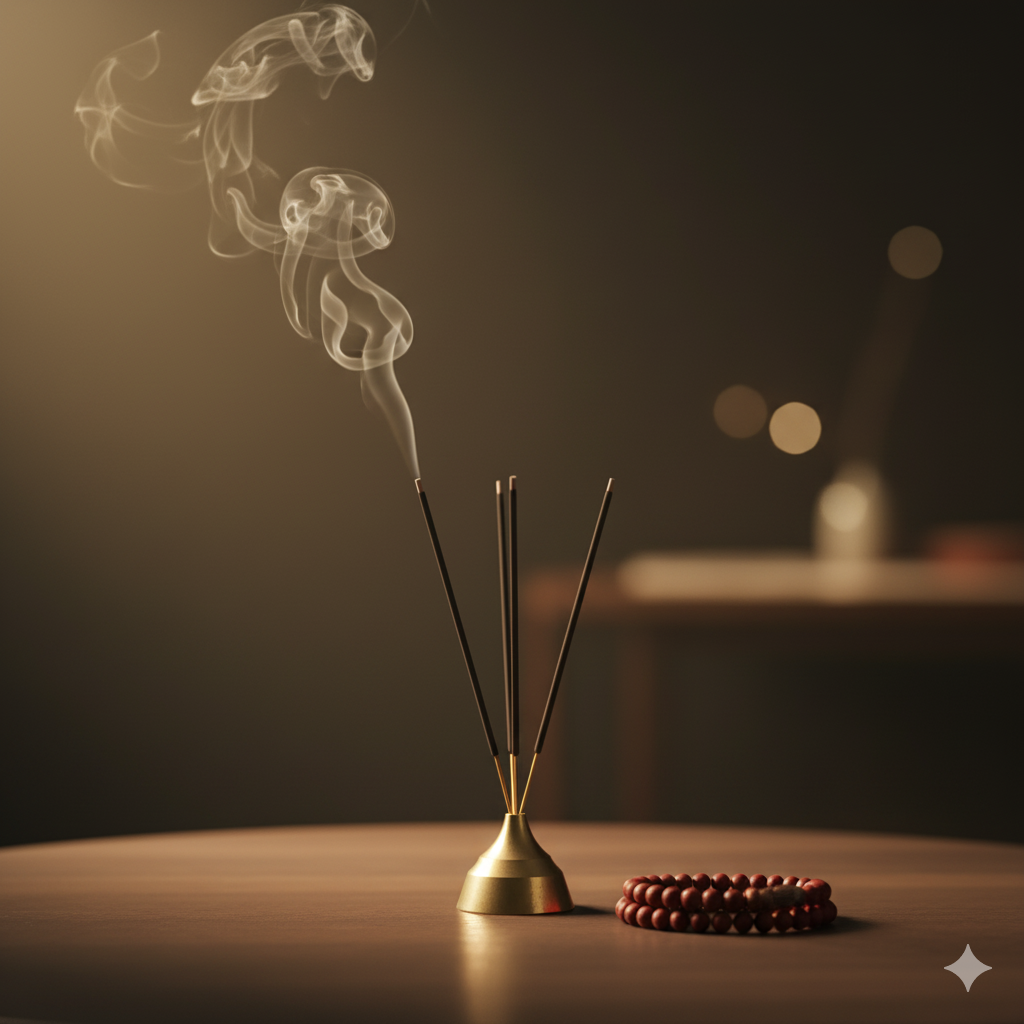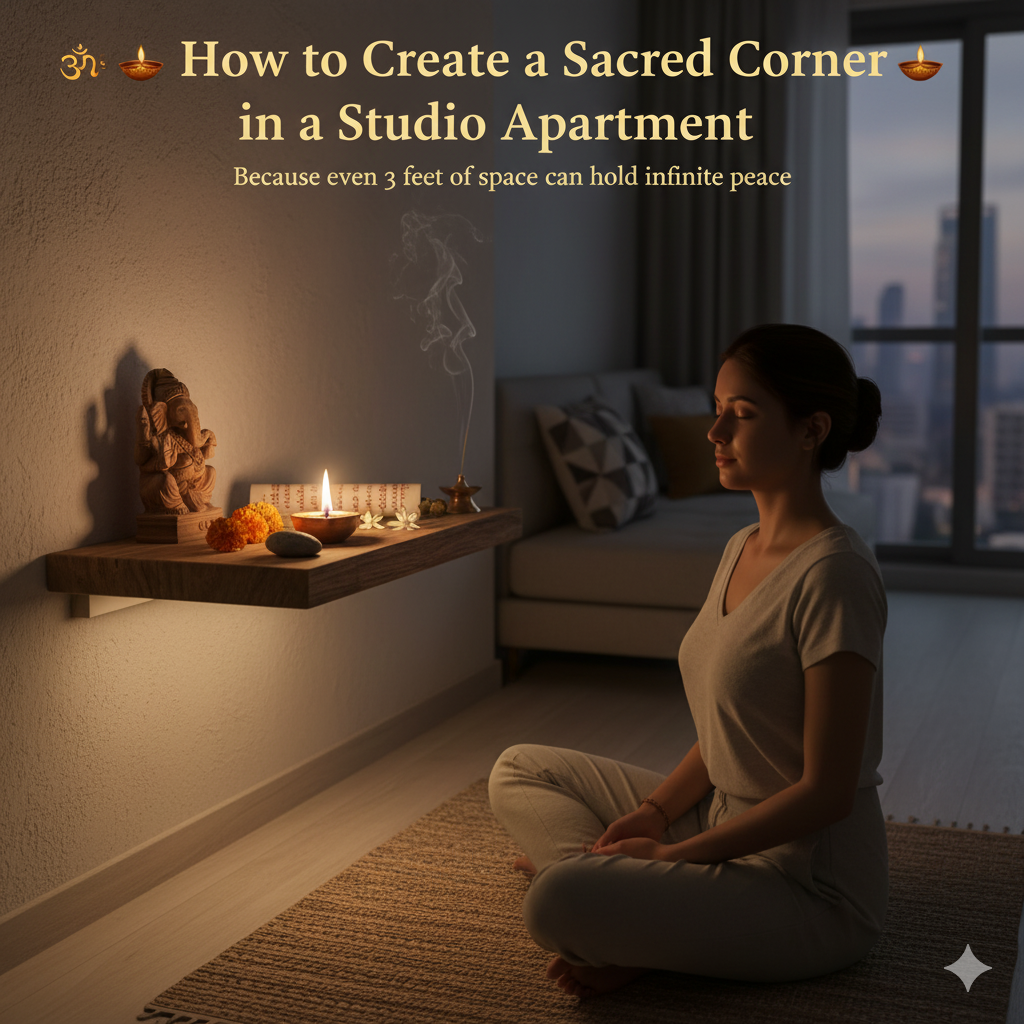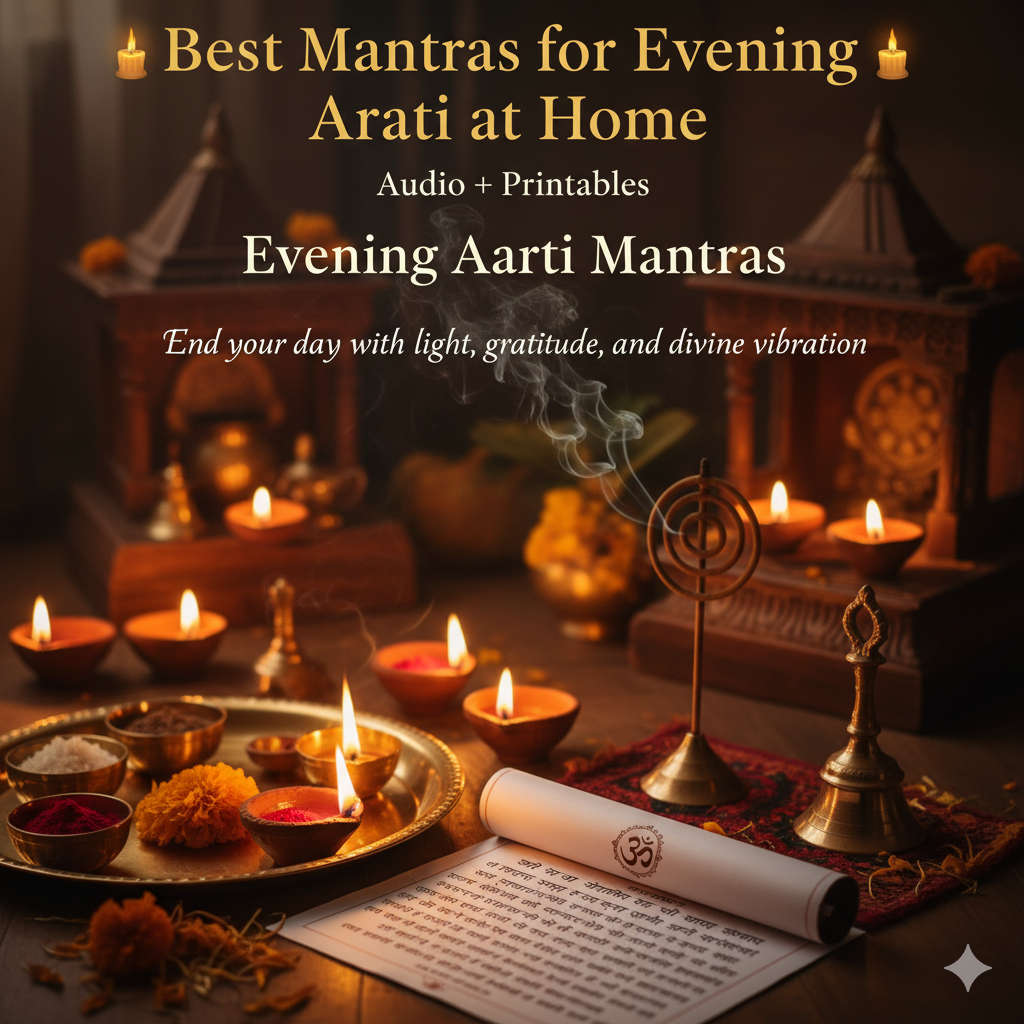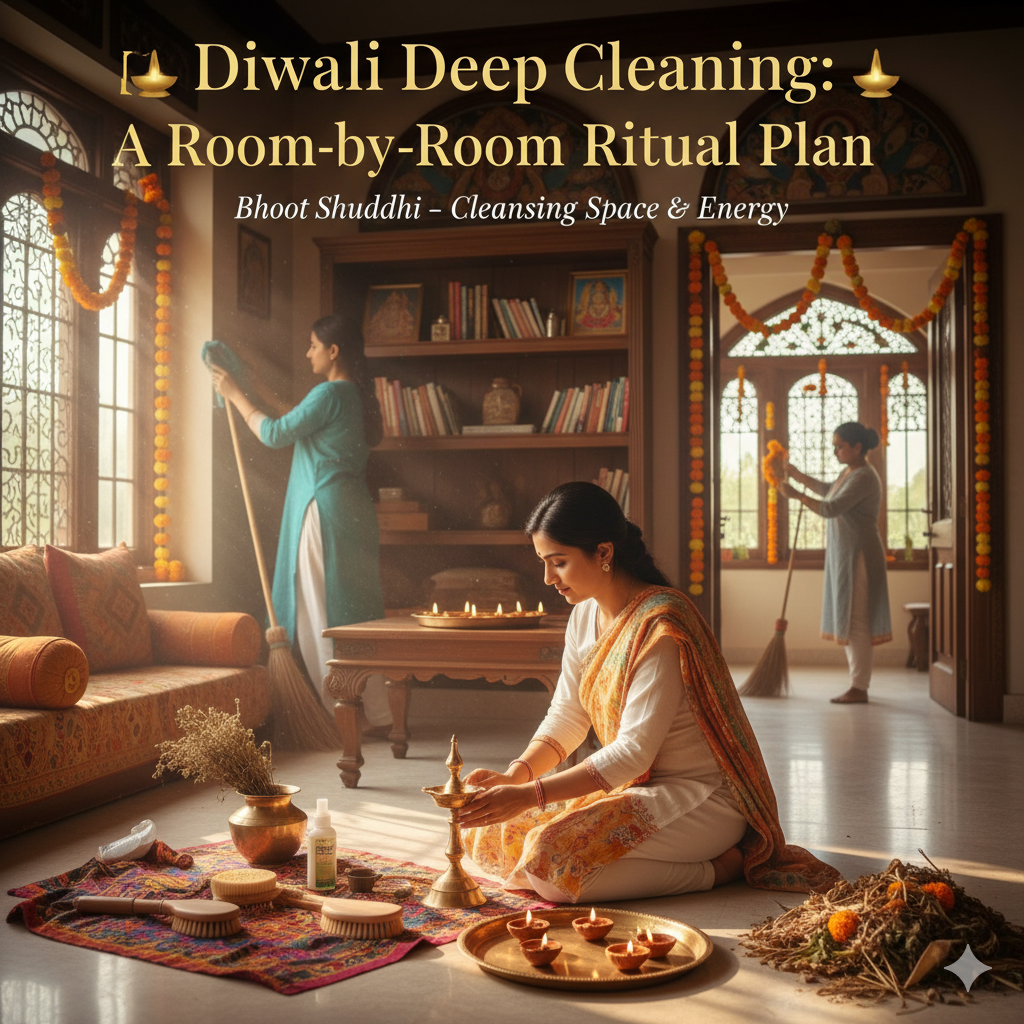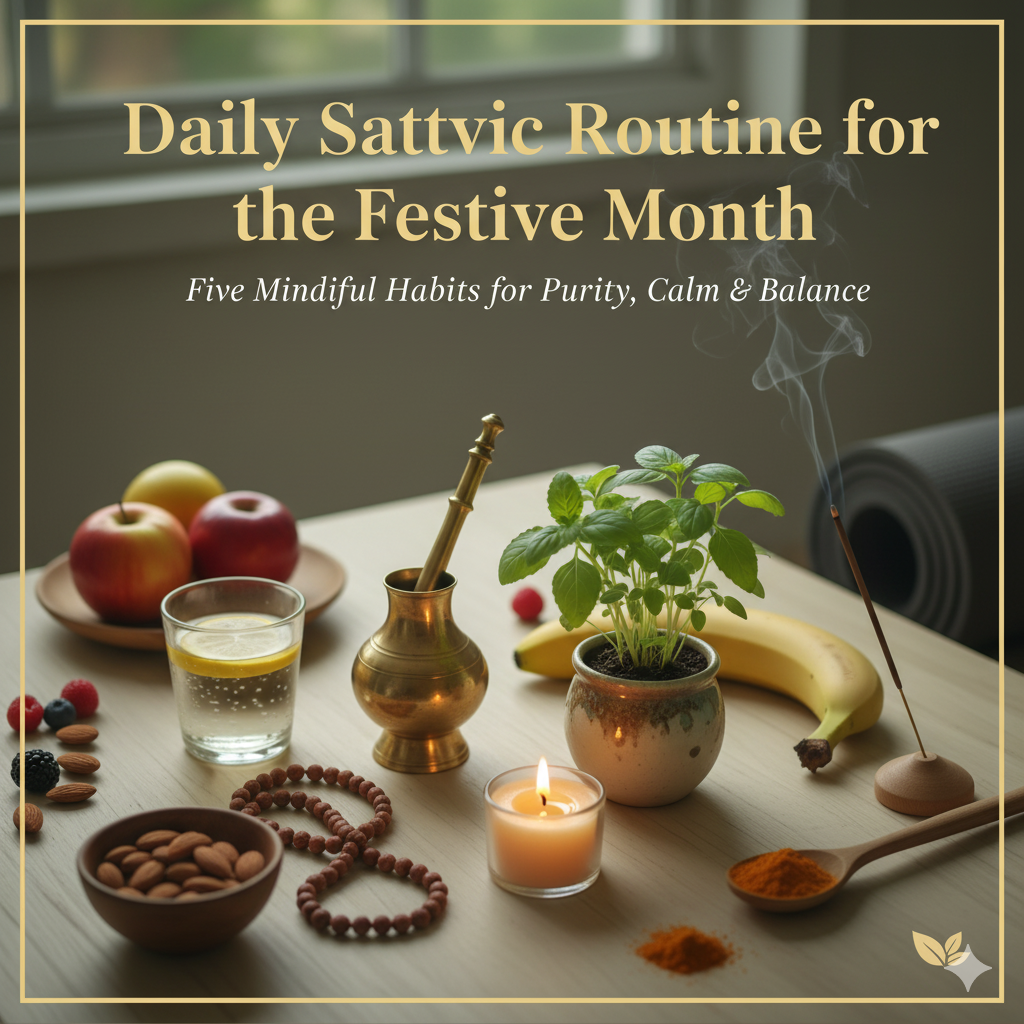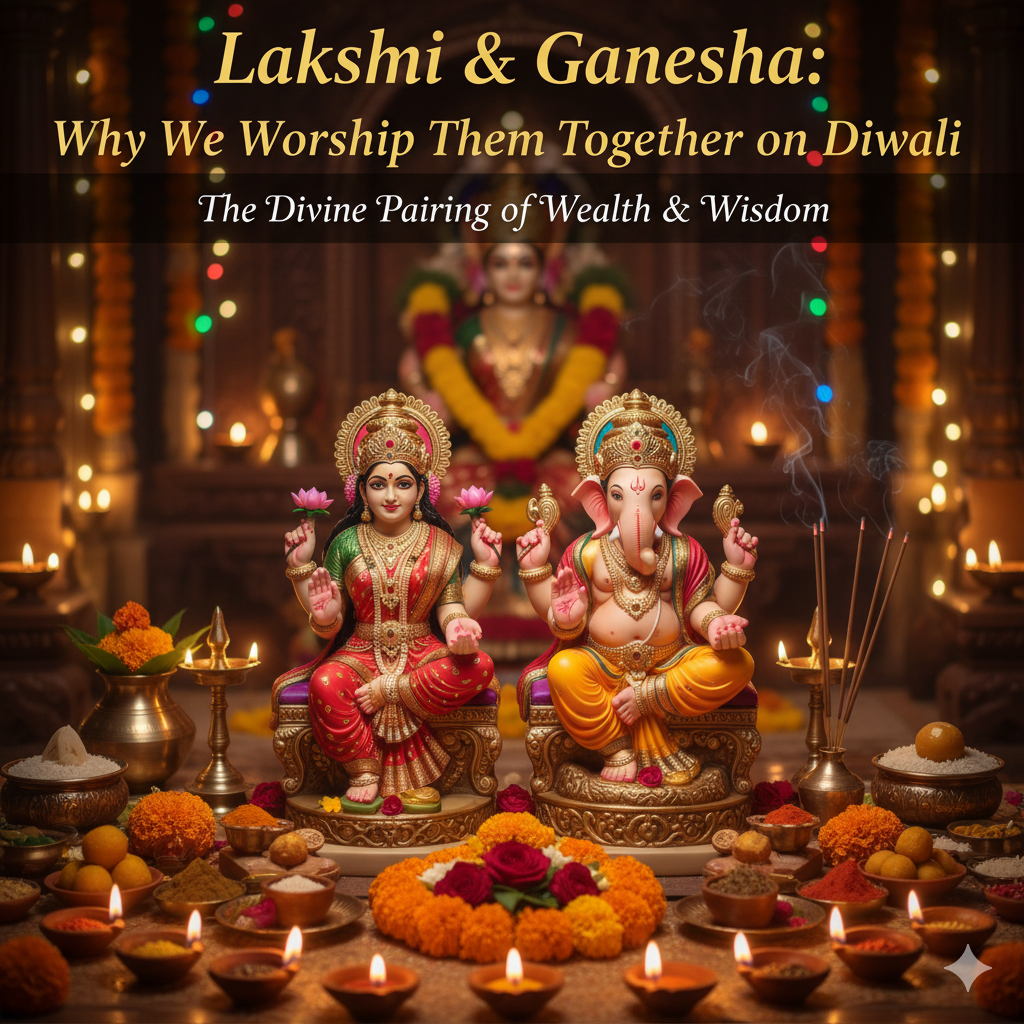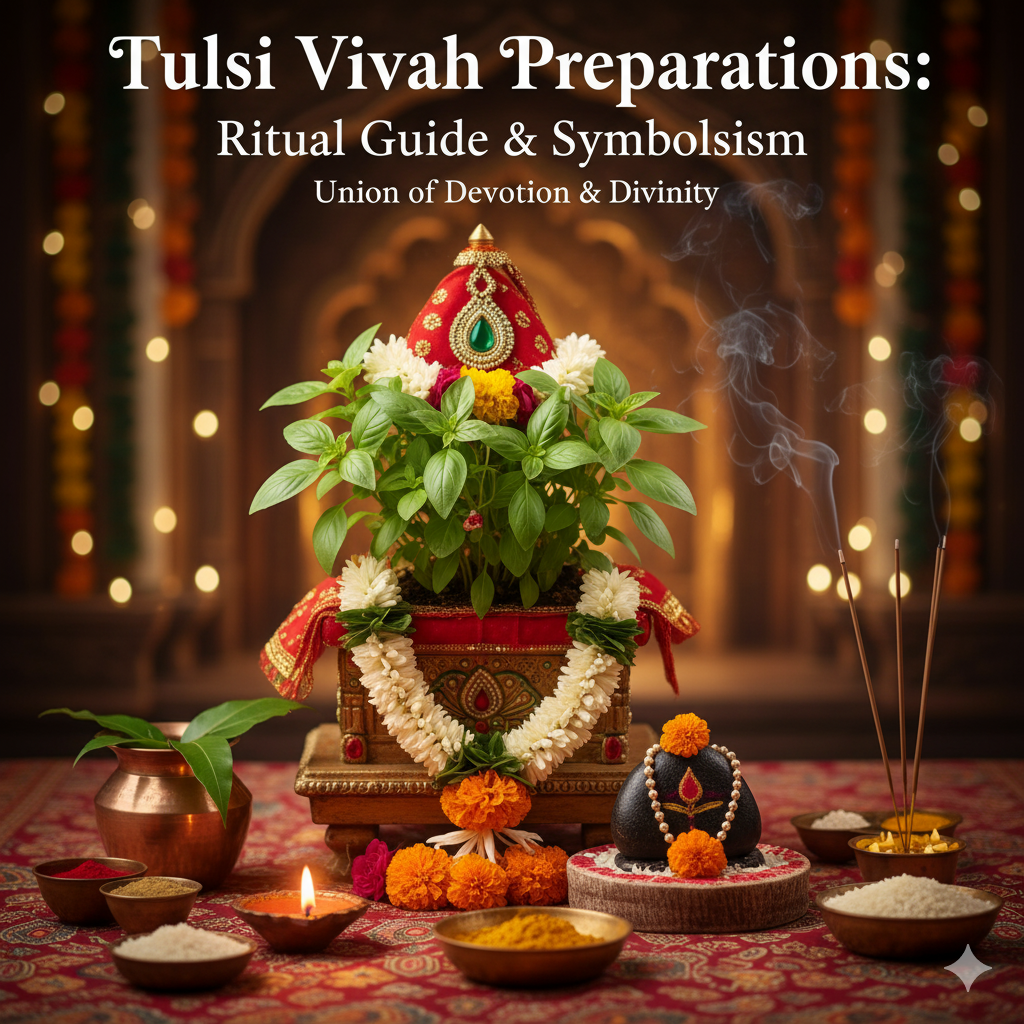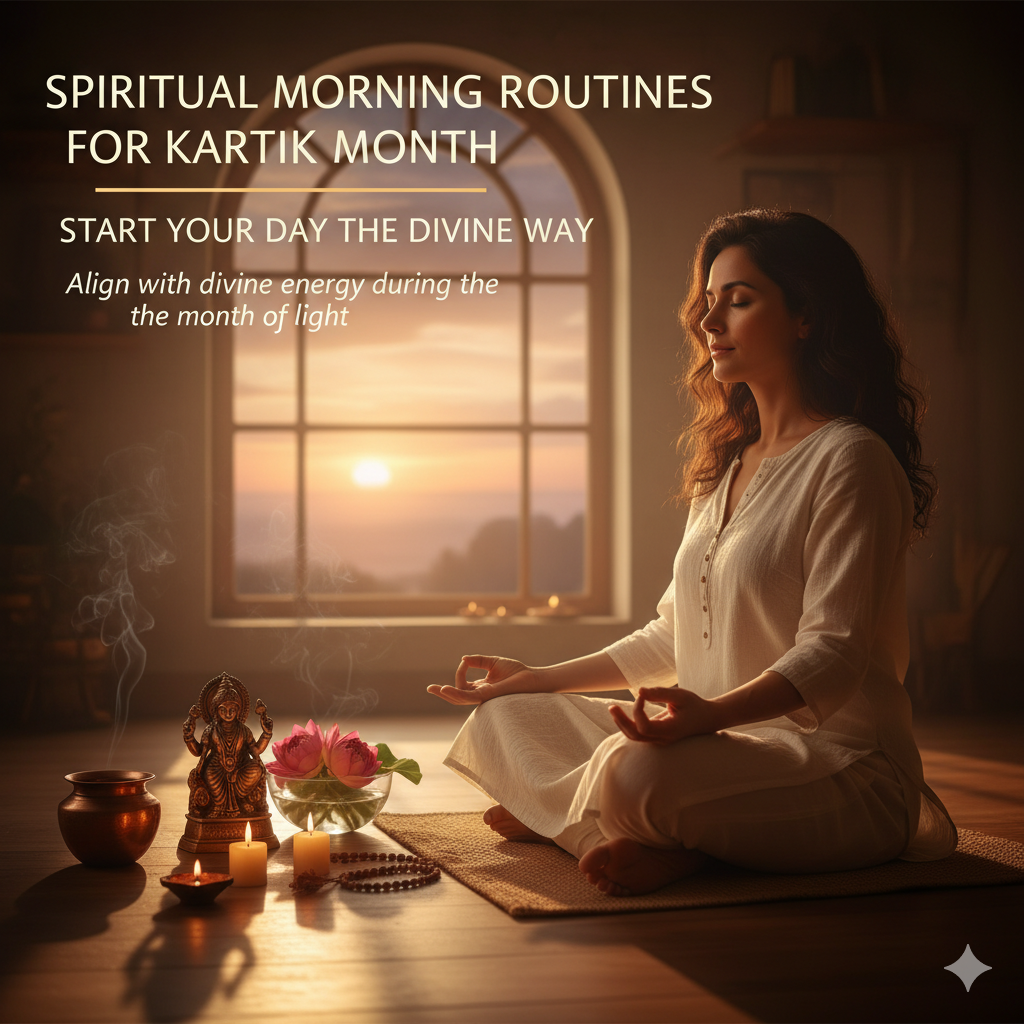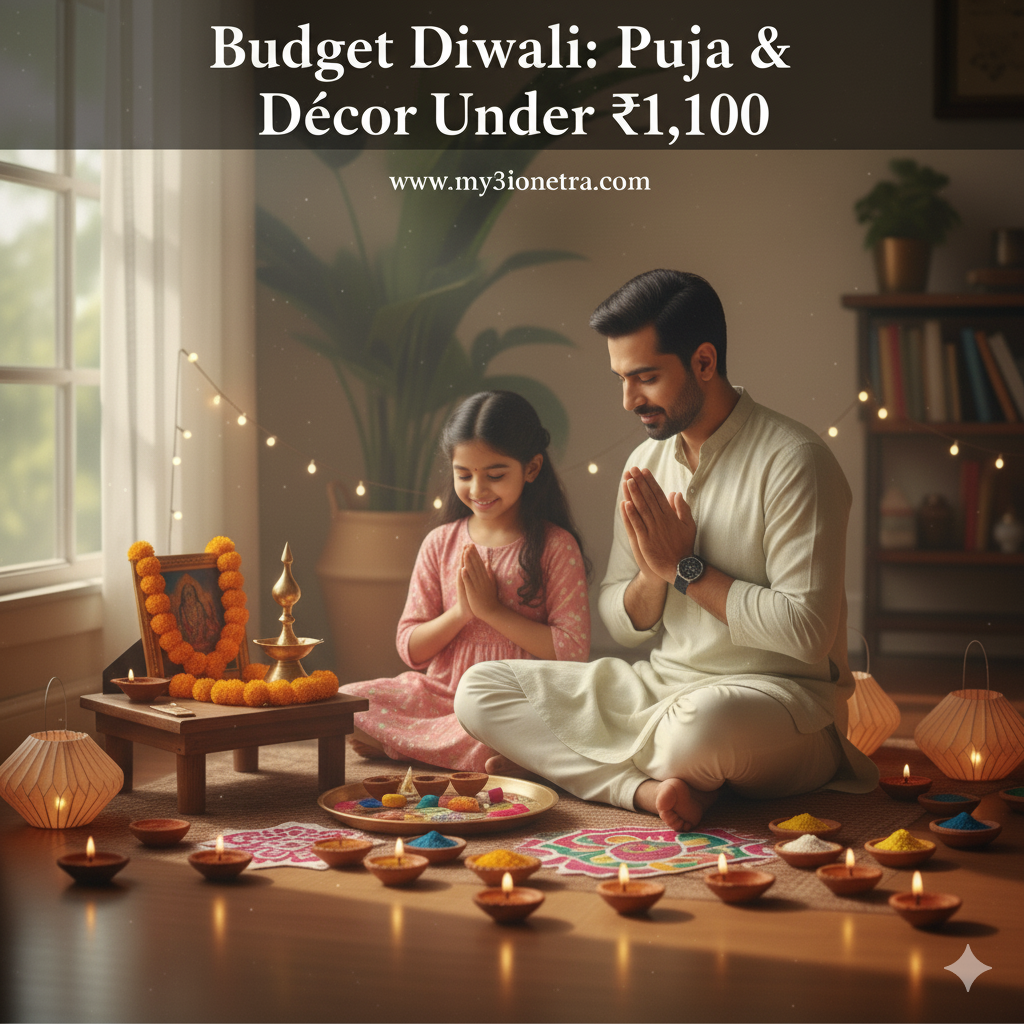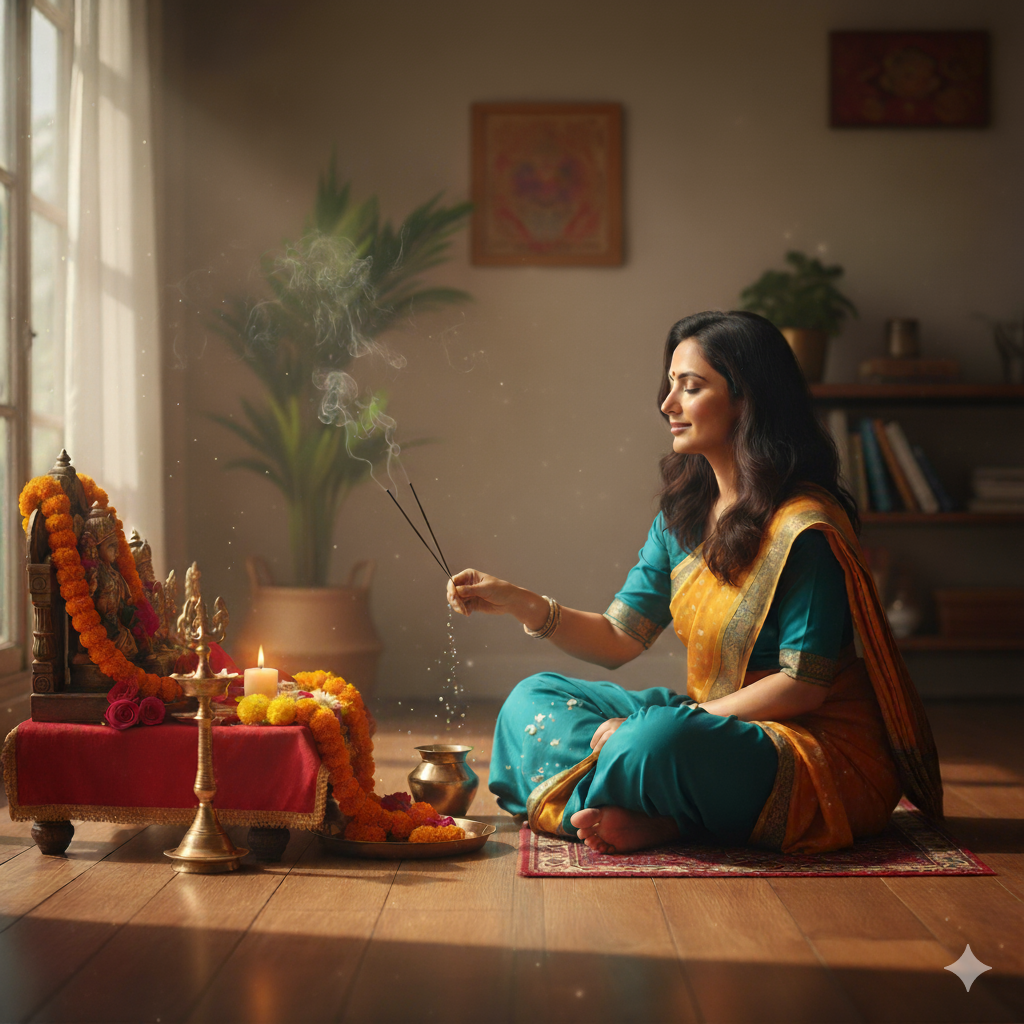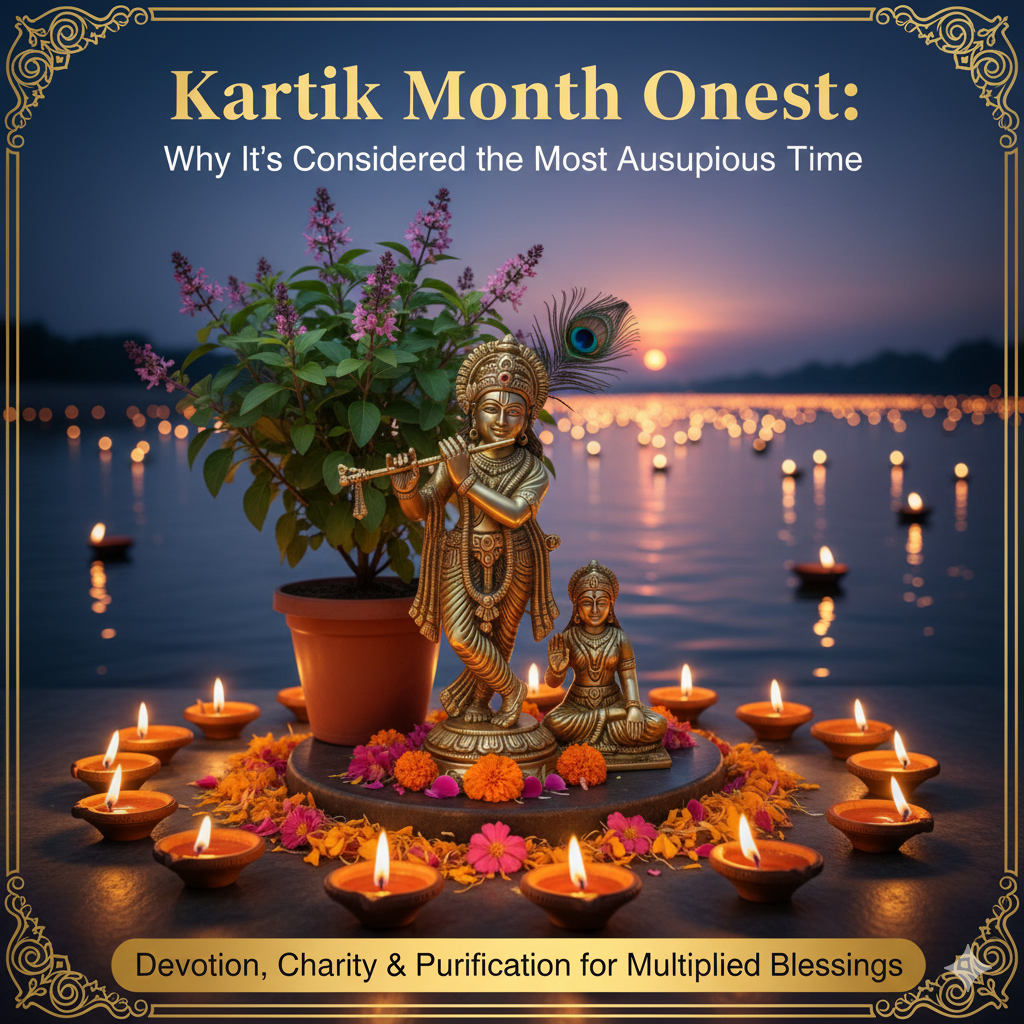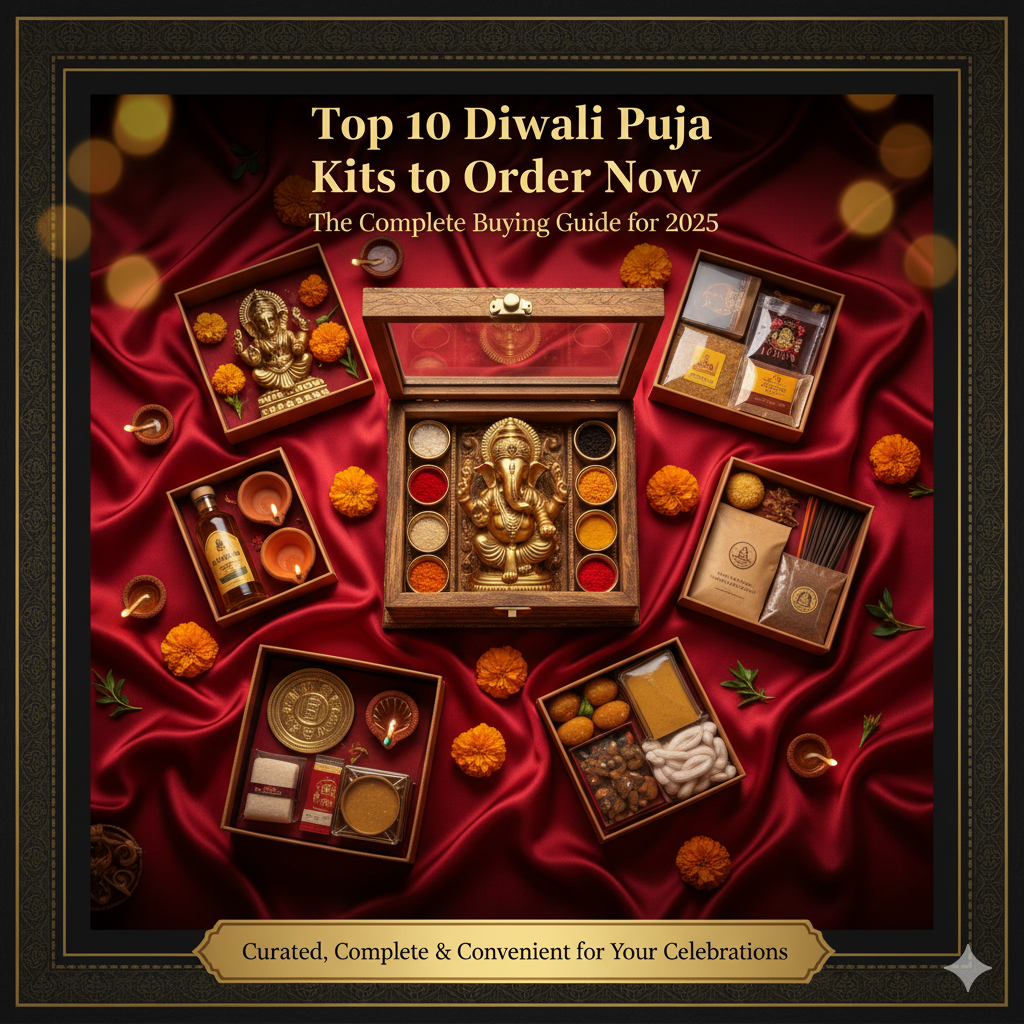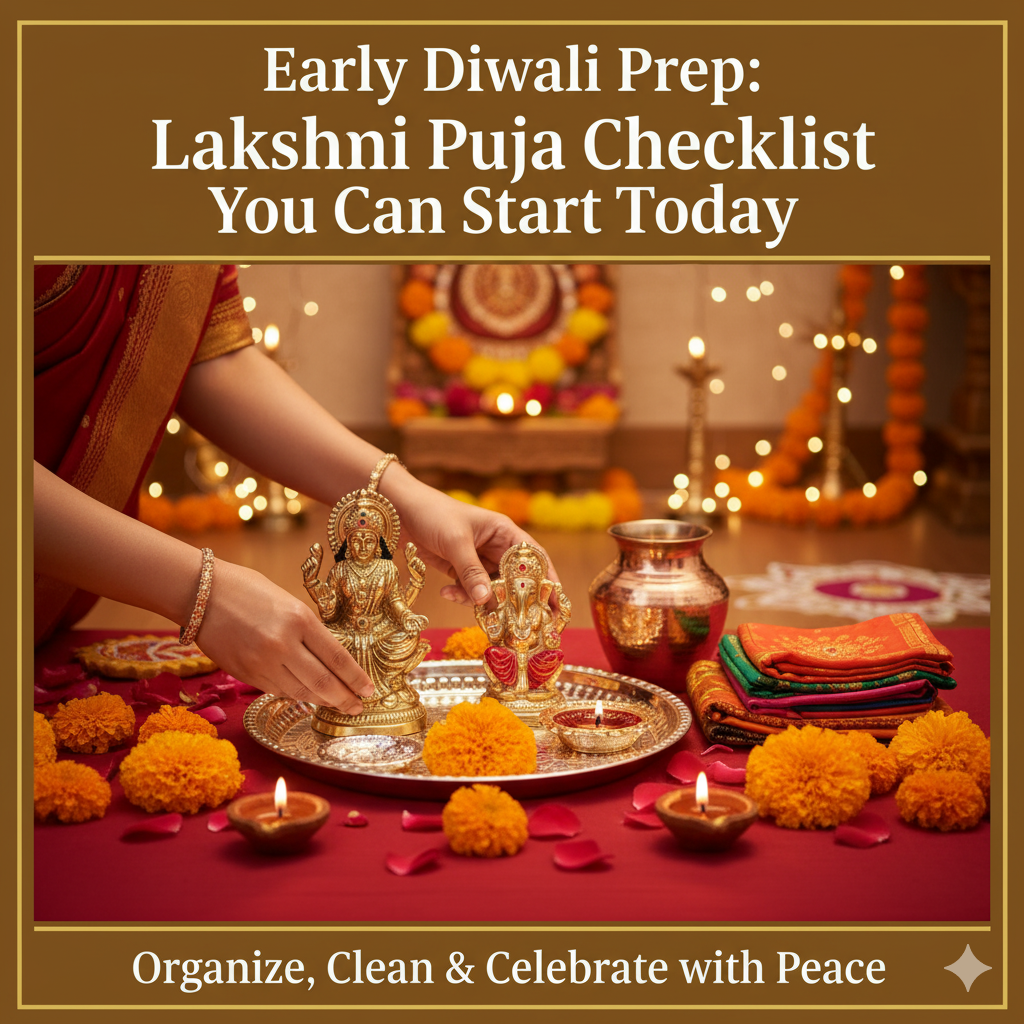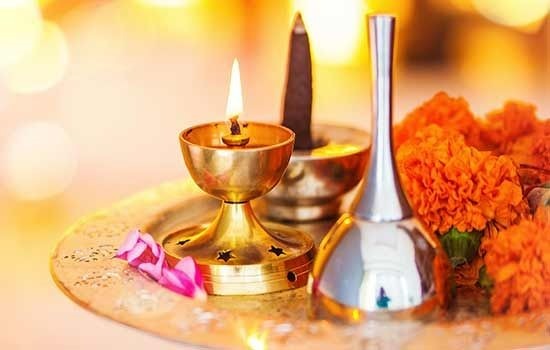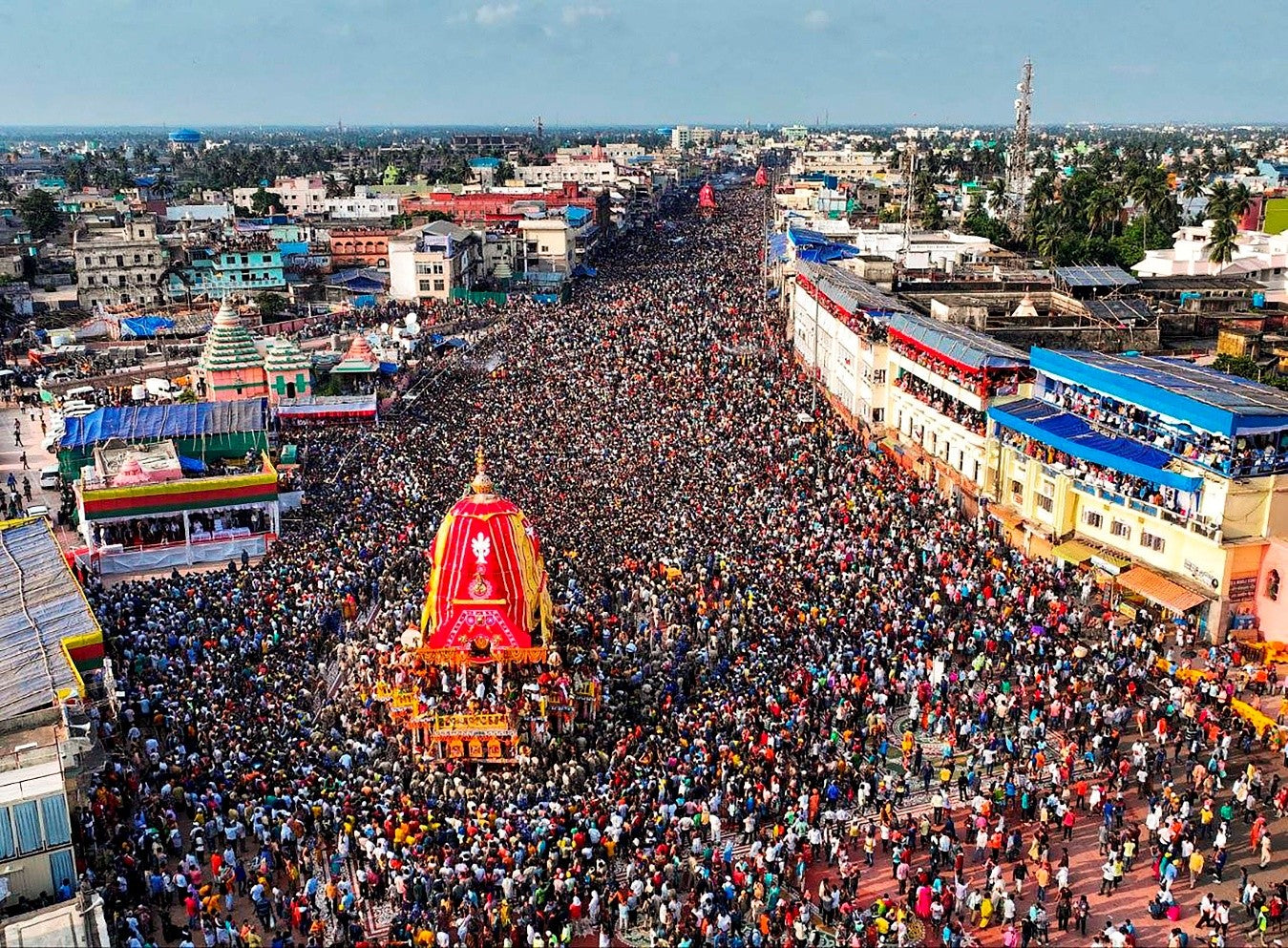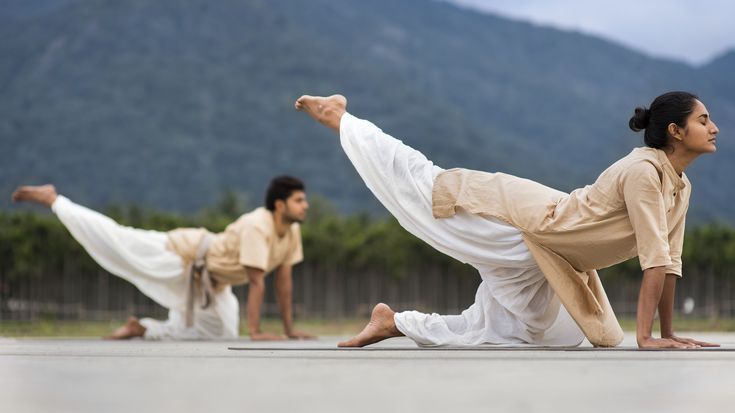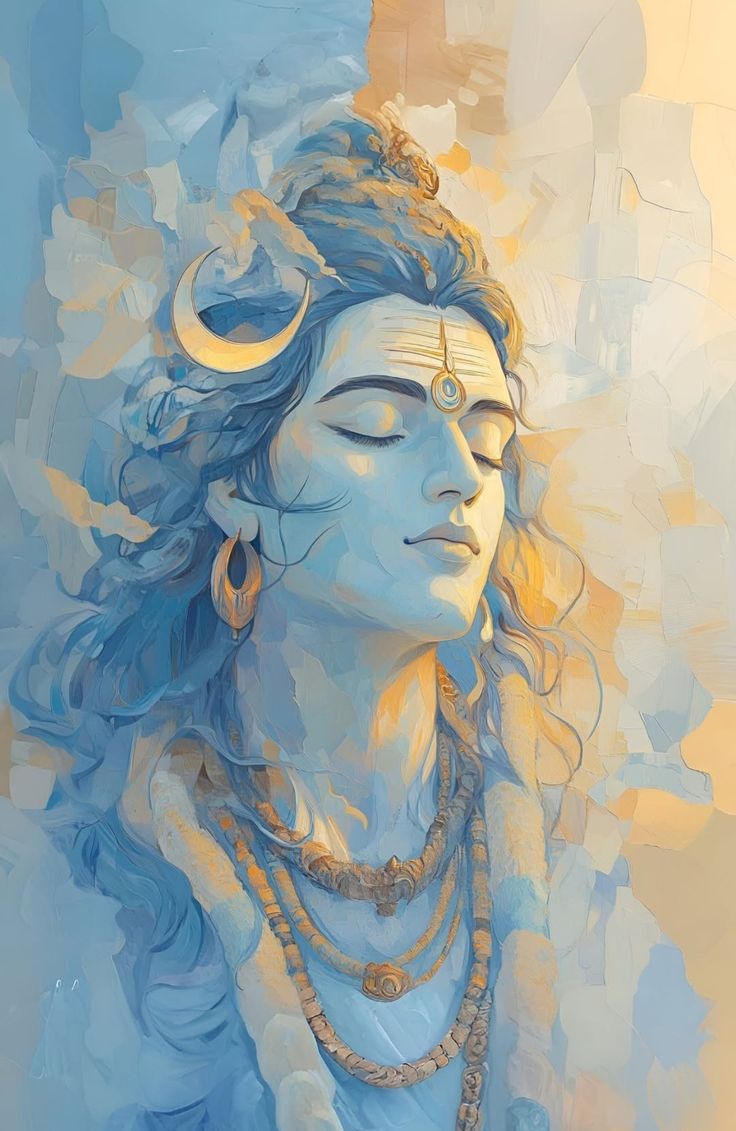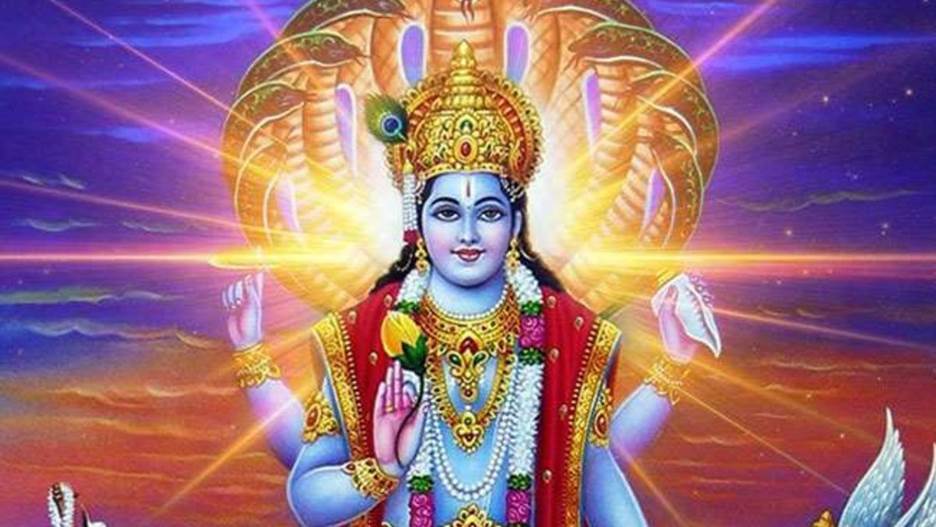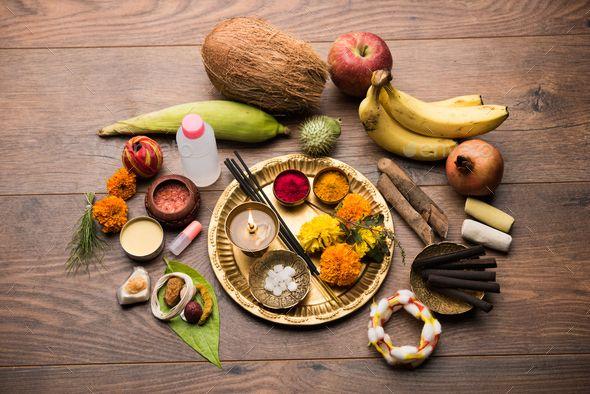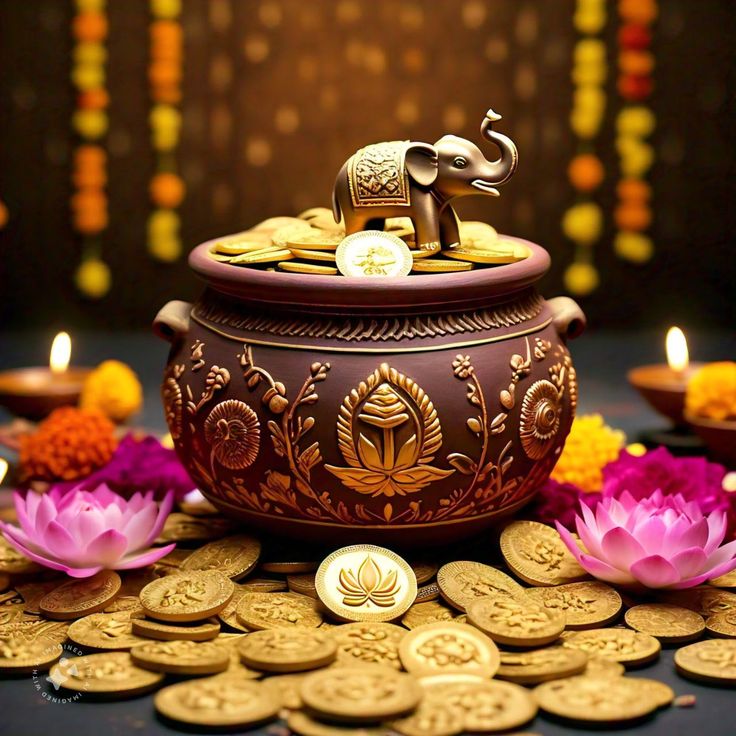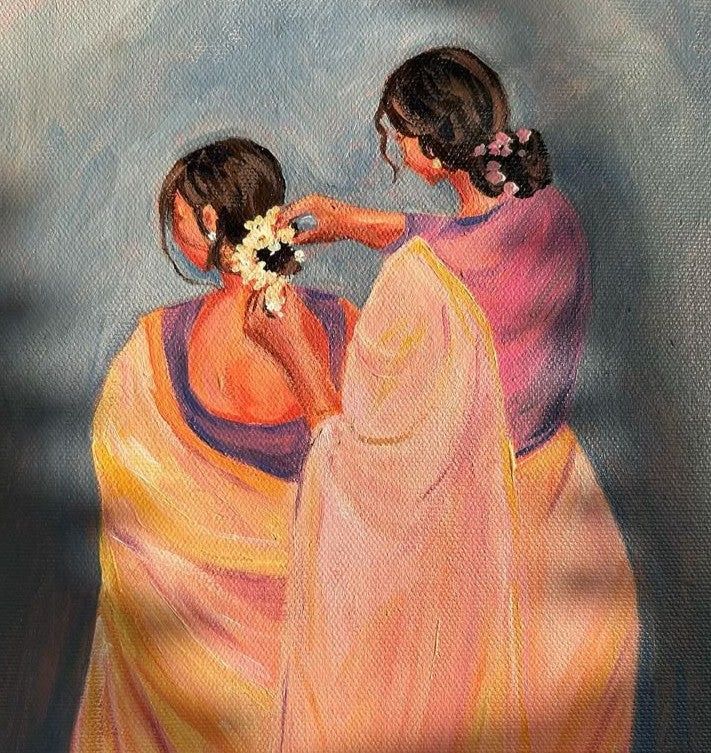Fragrance is one of the most powerful ways to invite divinity into your home. From the gentle smoke of agarbatti (incense sticks) to the sacred richness of dhoop and the calming purity of essential oils, each has a unique purpose in worship and wellbeing.
In Hindu tradition, scent isn’t just sensory — it’s spiritual. The Gandha (fragrance) offering is one of the key panchopacharas (five sacred offerings) made to deities during puja. The fragrance purifies the air, uplifts the mood, and creates an atmosphere where prayers flow naturally.
But which one should you use — agarbatti, dhoop, or essential oils? Let’s explore the difference, benefits, and the right times to use each.
The Spiritual Science of Fragrance
According to Vedic texts, fragrance directly affects the pranic energy (life force) of a space.
-
Sweet or floral scents attract positive, sattvic energy.
-
Woody and resinous aromas clear negativity and ground the mind.
-
Camphorous or herbal notes purify the atmosphere and repel negativity.
Fragrance acts as a bridge between the physical and spiritual — it connects our prayers to the higher realms.
1. Agarbatti (Incense Sticks) — The Everyday Purifier
What It Is
Agarbatti is a thin stick made of bamboo coated with aromatic paste — usually sandalwood, jasmine, or rose. When lit, it releases steady, fragrant smoke that’s both soothing and symbolic of prayers rising to the heavens.
When to Use
-
Daily Puja: Morning and evening prayers.
-
Meditation: Helps improve focus and calmness.
-
Before Guests Arrive: Purifies the energy of the home.
Benefits
-
Clears stale energy.
-
Induces concentration during mantra chanting.
-
Creates a sattvic (pure and peaceful) environment.
How to Choose
Opt for natural, charcoal-free incense made from organic resins and essential oils. Avoid synthetic or chemical-based ones, as they can cause irritation.
Popular Fragrances:
-
Sandalwood – for focus and devotion
-
Jasmine – for peace and harmony
-
Rose – for love and compassion
2. Dhoop — The Ritual Purifier
What It Is
Dhoop is a solid, resin-based incense (often without bamboo) used especially during rituals and festivals. It produces thicker smoke and stronger aroma — perfect for purifying large spaces or temple areas.
When to Use
-
During Festivals: Navratri, Diwali, Kartik Deepdan, or after major pujas.
-
In New Homes or After Cleansing Rituals: Removes negativity.
-
Evening Aarti: Creates a sacred, temple-like atmosphere.
Benefits
-
Deeply purifies air and energy.
-
Removes doshas or negative vibrations.
-
Enhances concentration for chanting or homa (fire rituals).
How to Use
-
Light a small piece and place it in a brass or clay holder.
-
Move it clockwise across rooms or corners for energetic cleansing.
Popular Types:
-
Loban Dhoop: Resinous and temple-like.
-
Guggul Dhoop: Calming and grounding.
-
Sambrani Dhoop: Deep cleansing, perfect for winter evenings.
👉 Explore Prasadam Essentials for puja dhoop, loban, and brass holders curated for daily and festive use.
3. Essential Oils — The Modern Spiritual Companion
What It Is
Essential oils are natural plant extracts that capture a flower or herb’s aroma. Unlike incense, they’re smokeless — ideal for homes where traditional burning isn’t possible.
When to Use
-
During Meditation or Yoga: Helps calm and focus the mind.
-
For Night Rituals: Promotes restful sleep and subtle energy cleansing.
-
For Modern Apartments: Smoke-free and child/pet-friendly option.
Benefits
-
Regulates mood and reduces anxiety.
-
Cleanses aura without smoke.
-
Adds a modern, refreshing touch to traditional rituals.
How to Use
-
Add 4–5 drops to a diffuser or oil burner.
-
Use in combination with chanting or journaling.
-
Can also be added (sparingly) to cleaning water for altar wipes.
Recommended Oils:
-
Sandalwood: Meditation & grounding.
-
Lavender: Peace & relaxation.
-
Frankincense: Purification & prayer.
-
Lemongrass: Cleansing & freshness.
Comparison Table: Agarbatti vs Dhoop vs Essential Oils
| Aspect | Agarbatti | Dhoop | Essential Oils |
|---|---|---|---|
| Form | Stick | Resin/Tablet | Liquid extract |
| Ideal For | Daily puja | Rituals/Festivals | Meditation, modern use |
| Energy Effect | Light & uplifting | Deep & purifying | Subtle & soothing |
| Best Time | Morning/Evening | During Aarti | Meditation/Night |
| Smoke | Mild | Heavy | None |
| Usage Space | Rooms, temples | Large/open spaces | Apartments, offices |
When to Use What
🌞 Morning
Use agarbatti to awaken your space and infuse freshness before starting the day.
🌅 Evening
Light dhoop to cleanse the day’s energy and invite divine calmness during Aarti.
🌙 Night
Diffuse essential oils for soft, peaceful fragrance as you wind down with gratitude or meditation.
This rotation ensures your home remains spiritually aligned and energetically balanced.
Common Mistakes to Avoid
❌ Using synthetic or chemical incense.
❌ Burning dhoop without ventilation.
❌ Mixing too many fragrances at once.
❌ Leaving incense unattended.
✅ Always choose natural, organic options aligned with your intent.
FAQs
Q1. Can I use both agarbatti and dhoop in one puja?
Yes, start with agarbatti for invocation and end with dhoop during Aarti.
Q2. Which is better — dhoop or essential oils?
They serve different purposes. Dhoop purifies, essential oils soothe — use both depending on time and mood.
Q3. Are incense and oils mentioned in scriptures?
Yes, Gandha Seva (offering fragrance) is part of daily deity worship as described in Vedic rituals.
Q4. Which fragrance attracts Goddess Lakshmi?
Lotus, rose, and sandalwood are believed to please Lakshmi Mata during Diwali and Kartik month.
Conclusion
Fragrance is prayer in the air — it connects your senses with your spirit. Whether you choose the simplicity of agarbatti, the ritual power of dhoop, or the modern calm of essential oils, each has its own way of inviting positivity and peace.
✨ Begin your fragrant journey today:
-
Shop Puja Essentials & Prasadam Kits — with pure incense, loban, and dhoop curated for devotion.
-
Or Book a Puja or Chadhawa to experience rituals performed with authentic aromatic offerings.
Let every fragrance in your home remind you of what’s sacred — calmness, purity, and divine connection. 🌼


